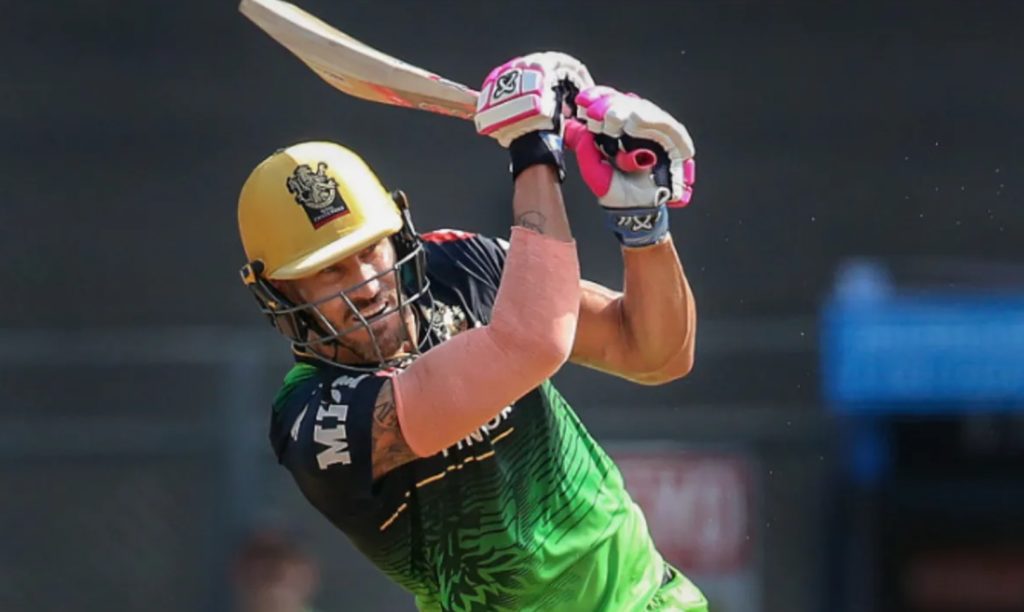Faf du Plessis refuses to go away as a T20 force and it’s embarrassing the Proteas selectors. A lack of investment in him for the World Cup should be seen as a lack of ambition, writes RYAN VREDE.
I watched with equal measure joy and despair as Du Plessis played a match-defining hand for the Royal Challengers Bangalore against the Sunrisers Hyderabad on Sunday.
Joy, because to witness a batsman’s gift soar in that manner is one of the great experiences one can have in cricket. Despair, because I remembered that no matter how often Du Plessis’ gift soars in that manner between now and the T20 World Cup in October, he is likely to watch the tournament from his couch.
When Du Plessis retired from Test cricket in 2021, he reinforced his intention to continue playing white-ball cricket for the Proteas. At the time, he could reasonably expect to be considered for selection, particularly in T20 cricket, where he had developed into one of the format’s most consistent performers. Indeed, in Du Plessis’ last T20I series for the Proteas – against England in 2020 – he scored two half-centuries and average 60.
Du Plessis then finished as the second-highest run-scorer at the 2021 IPL, averaging 45 and boasting a strike rate touching 140. Form didn’t matter to the Proteas selectors then. They simply ignored him for the World Cup later that year.
It appears that this will be the case once more. There is no sound cricket reason for this. Du Plessis would start for any elite T20 nation in the game, whether he opens, comes in at first drop, or No 4. Add to this his excellent fielding, experience and leadership qualities, and one has to conclude that his continued omission must translate into a lack of ambition from the Proteas selectors.
Their perspective on his retirement has clouded their judgement and compromised the Proteas in the process. They’ve largely been silent on the issue, which feels insulting. The last time the conveyor of selectors, Victor Mpitsang, spoke on the issue was before the 2021 T20 World Cup. He said Du Plessis was not out of the running for a place at the tournament. The truth is he wasn’t being considered.
The selectors have hoped the nation forgets about Du Plessis. Yet, his consistency continues to haunt them and is a regular reminder of their incompetence in this context. As was the Proteas’ failure at the World Cup, where a group-game batting failure ultimately cost them a semi-final spot.
This is not to say that the Proteas don’t have talented batters occupying positions one through four. However, outside the prolific Rassie van der Dussen, not one of those players (Quinton de Kock, Temba Bavuma and Aiden Markram) can match Du Plessis’ consistency. Those in the wings – Reeza Hendricks and Janneman Malan among them – are fine players, but simply aren’t better T20 players by any meaningful metrics.
Frustratingly, there appear to be different standards for different players. De Kock, for example, continues to play white-ball cricket, despite announcing his Test retirement in early 2022. There are certain to be others who follow this path in the future, which frees them up to maximise their career earnings. How the selectors respond then will be telling.
We can’t be passive about Du Plessis being ignored, not if you want the team to be among the world’s elite in limited-overs cricket. We have to hold the selectors accountable for decisions that compromise the team’s potency and reflect a distinct lack of ambition.
As long as Du Plessis continues to play at the levels he is now, these selectors must be made to answer for their baffling incompetence on this matter.







